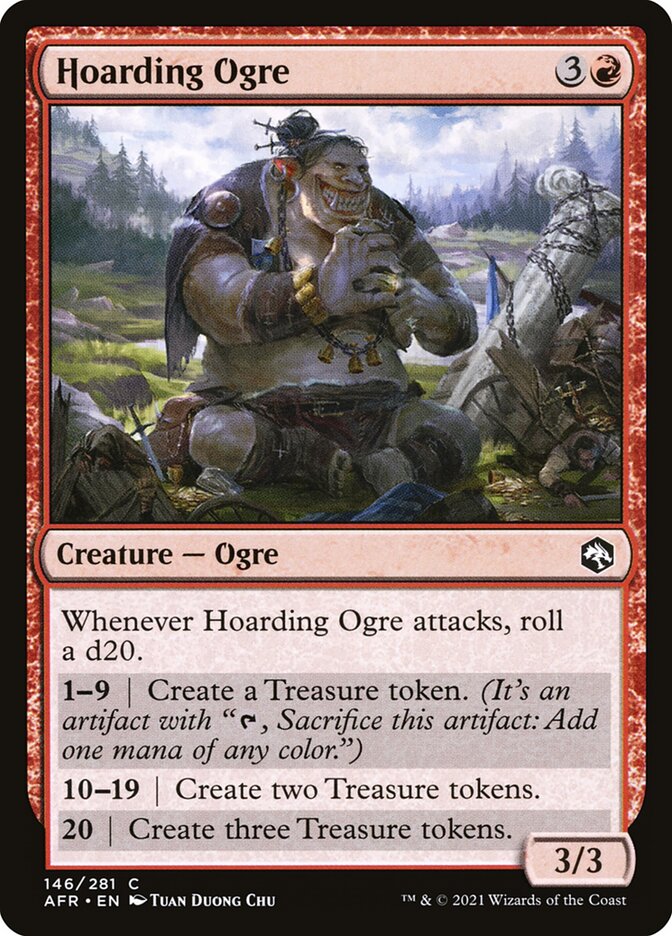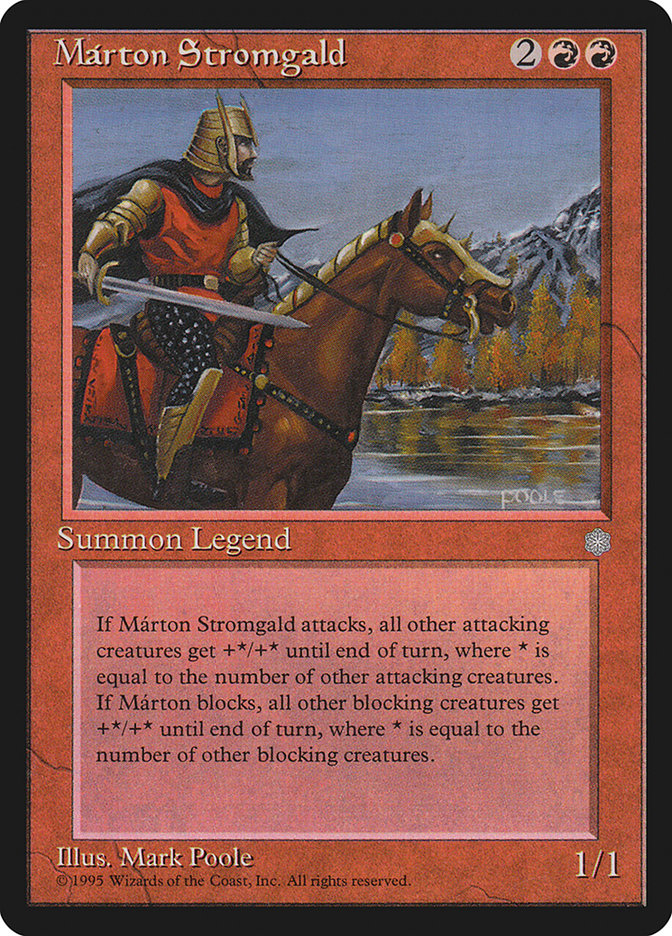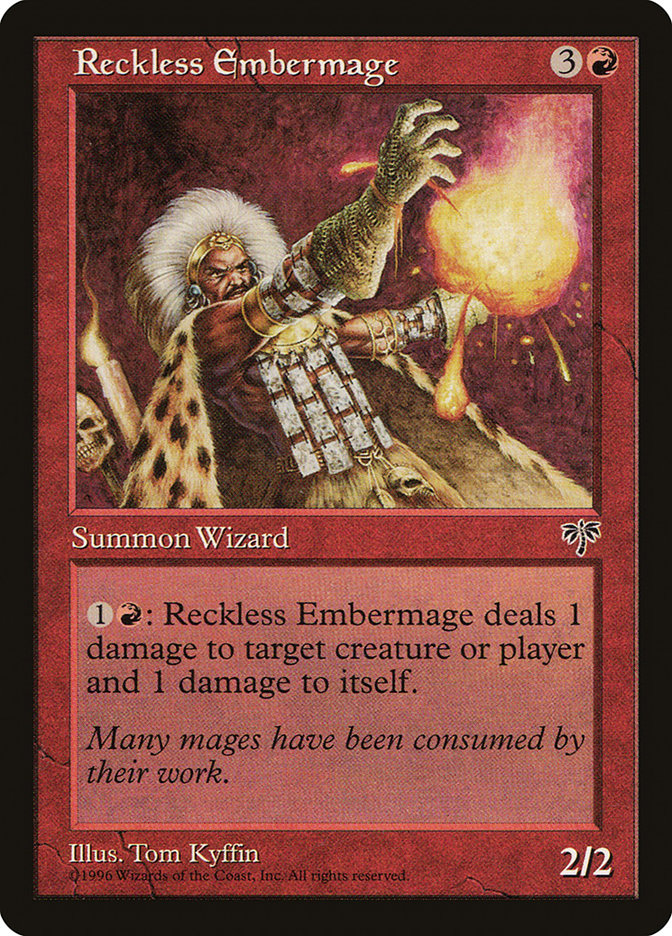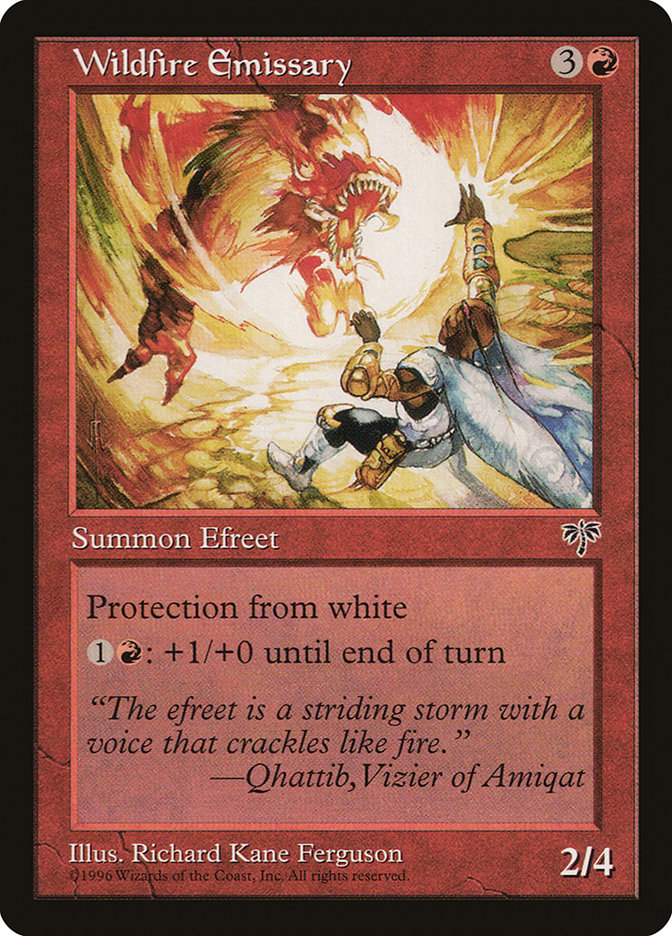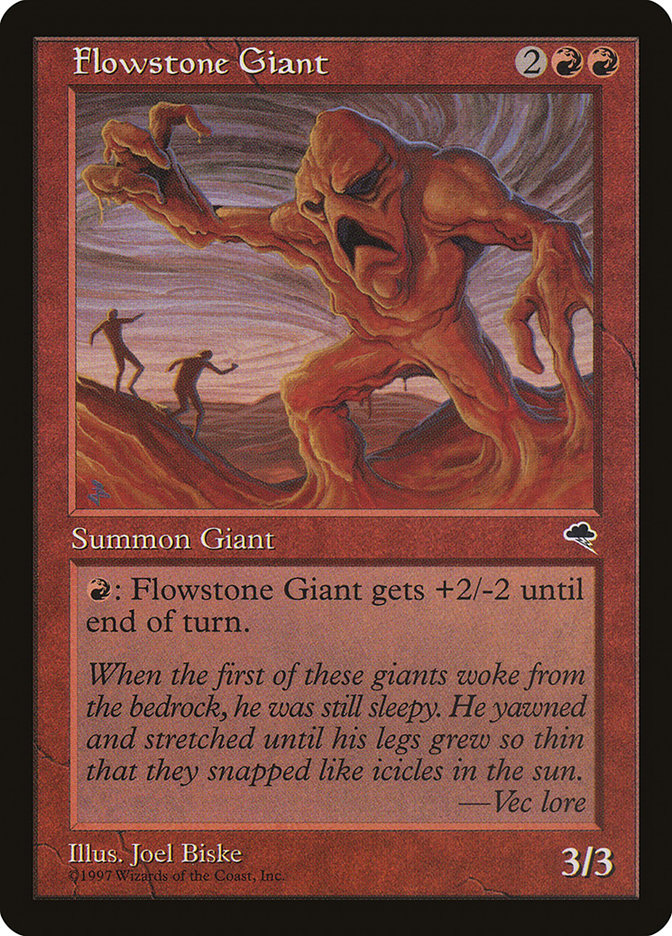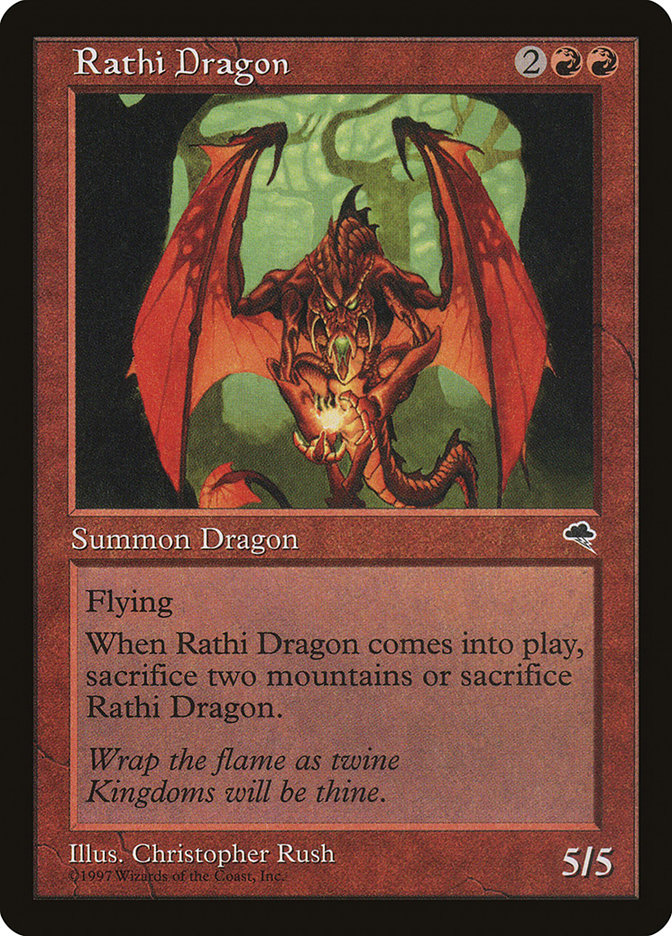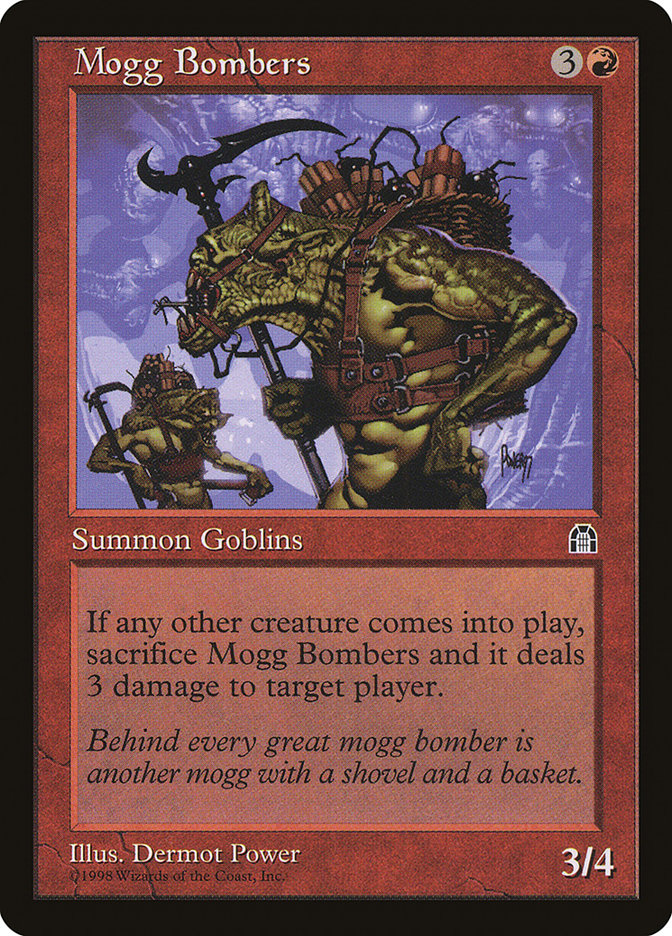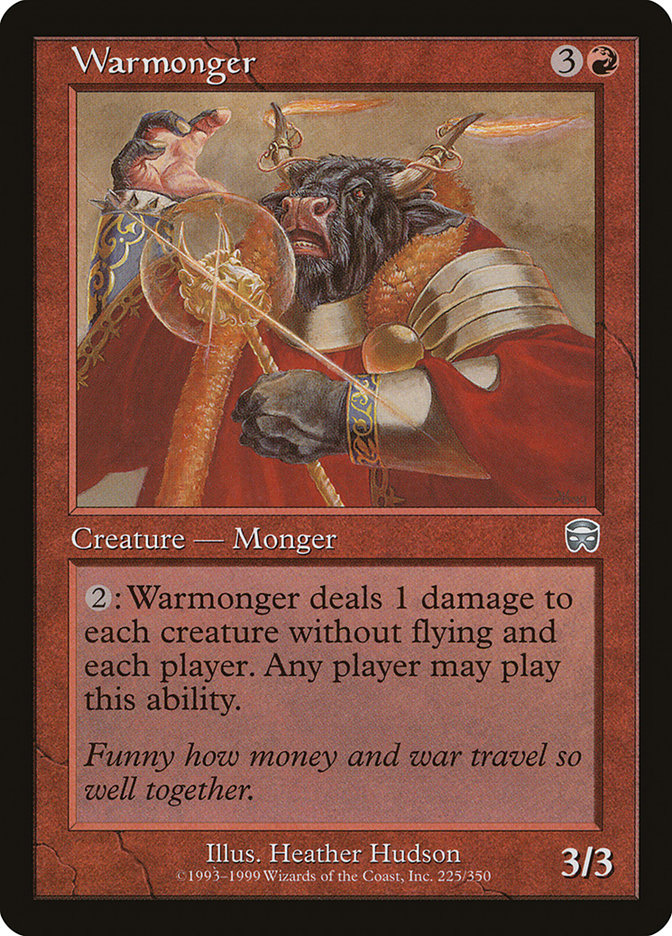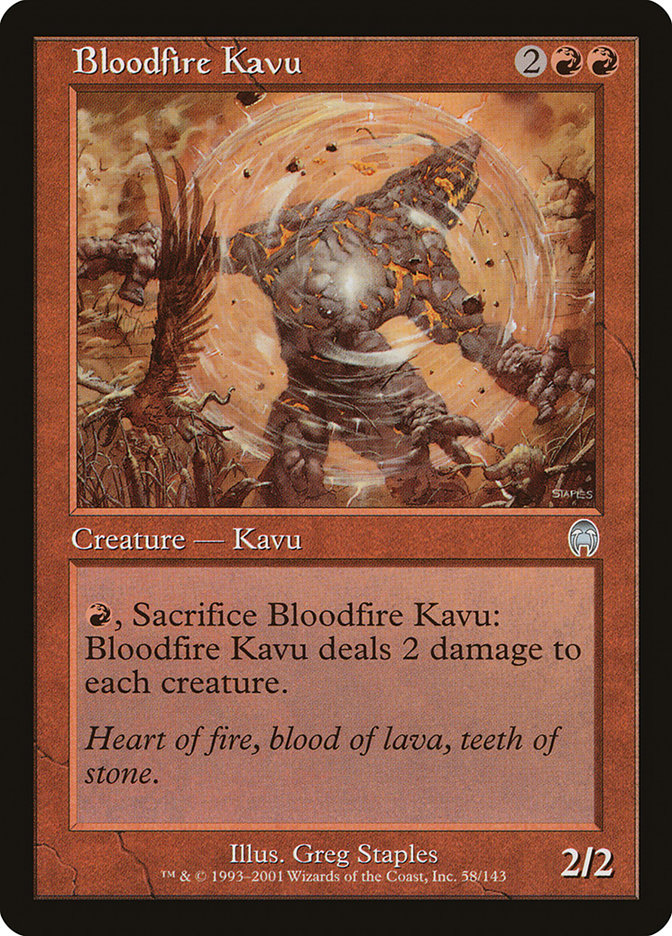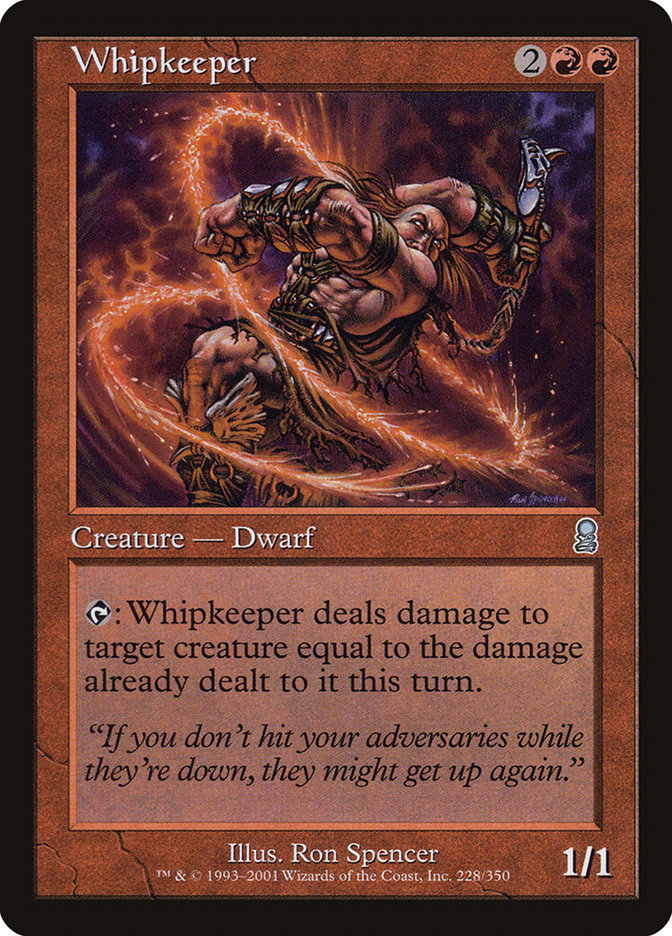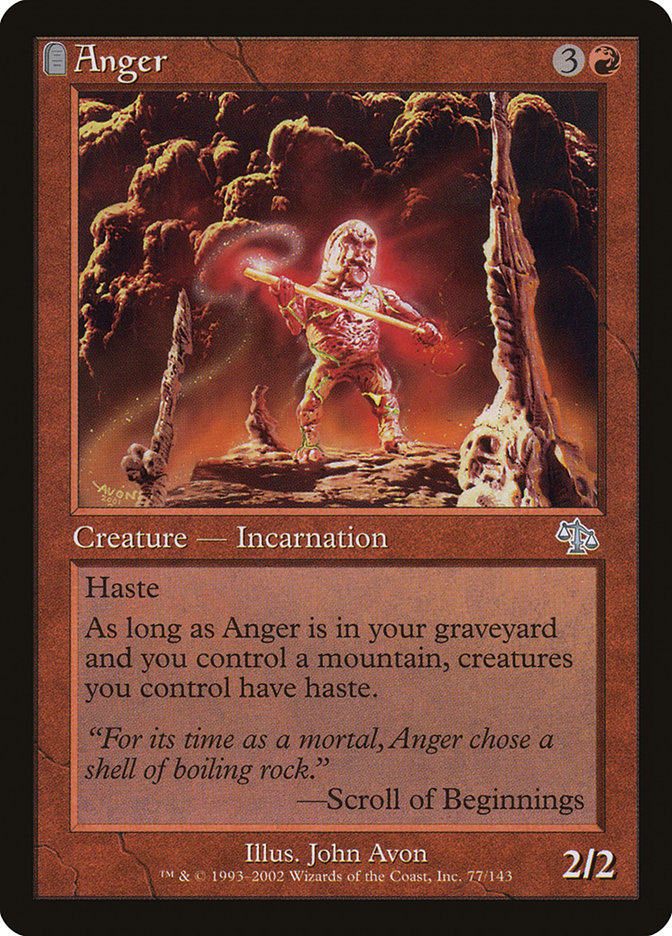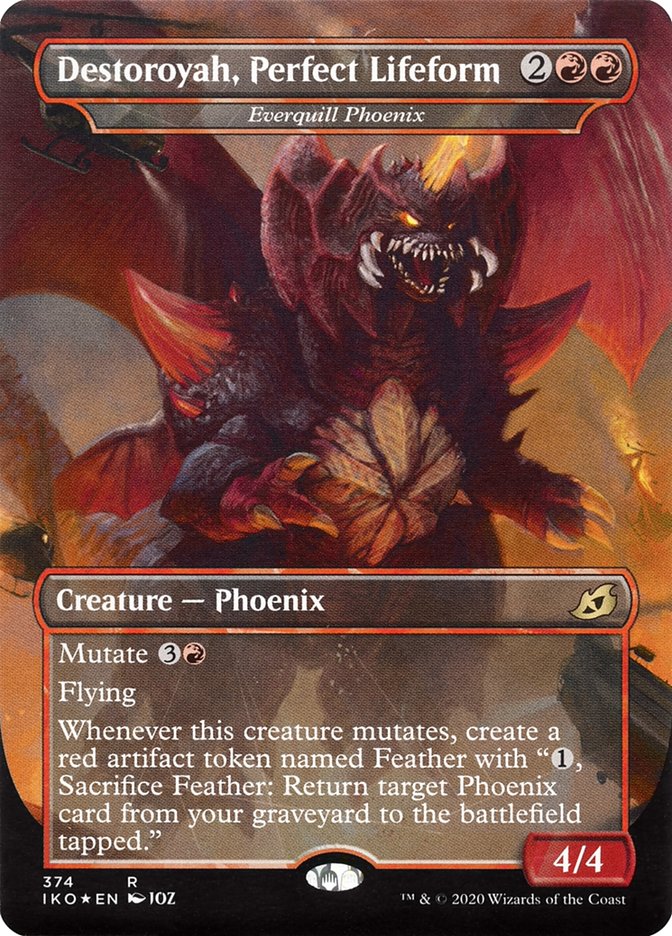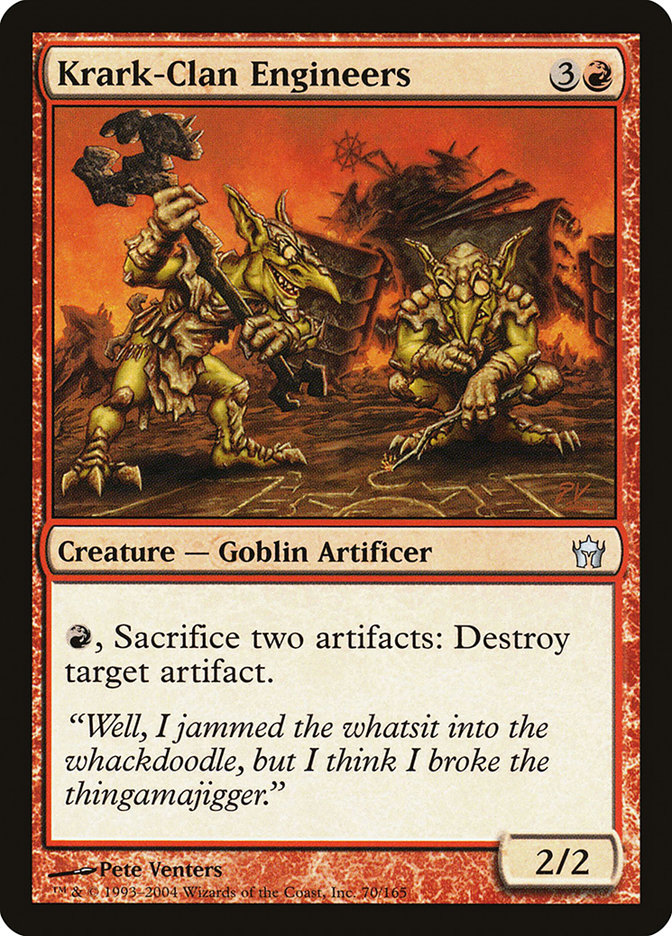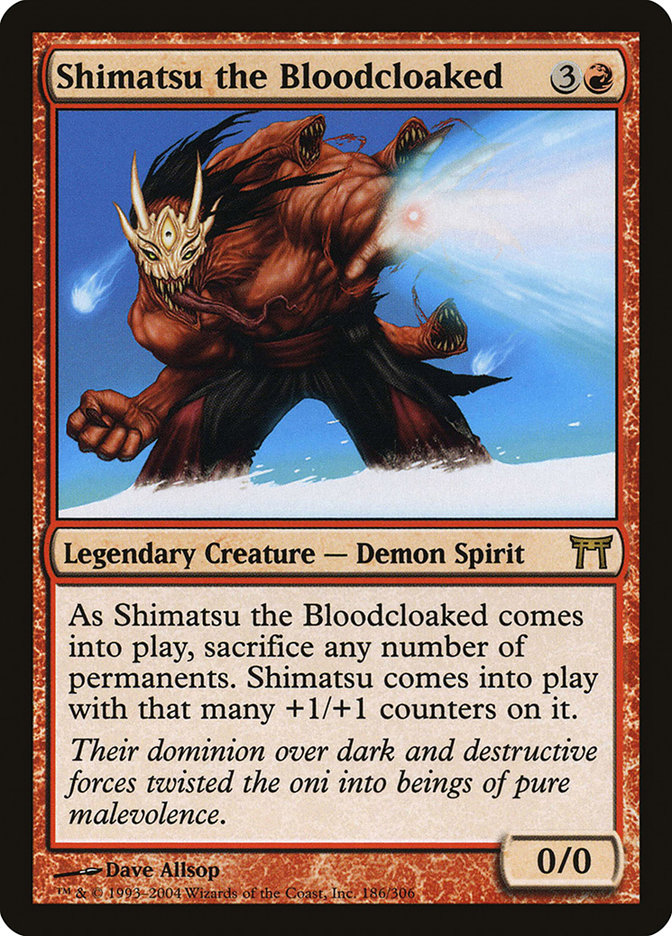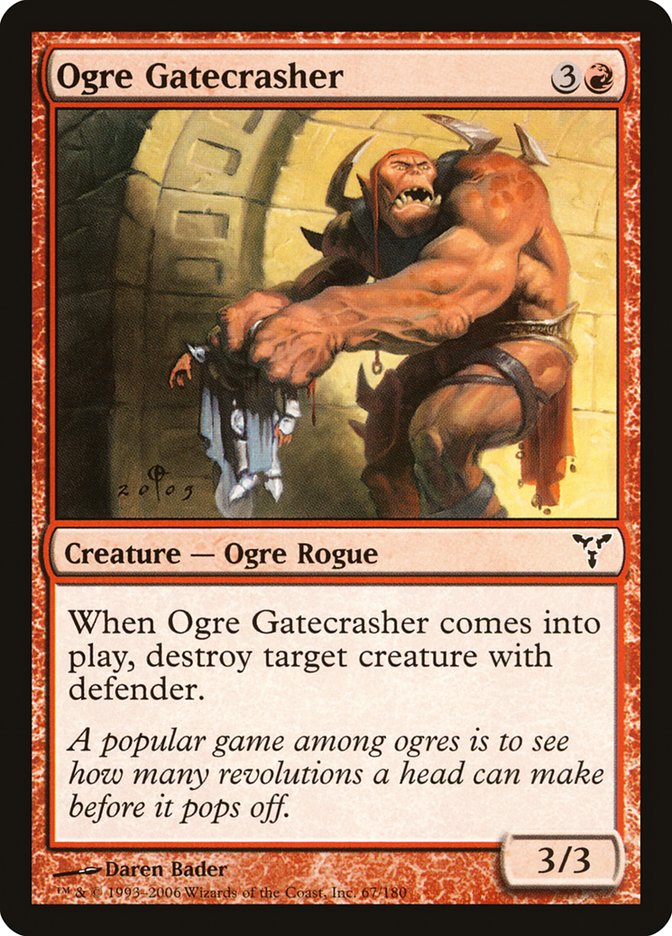Hoarding Ogre MTG Card
| Card sets | Released in 2 setsSee all |
| Mana cost | |
| Converted mana cost | 4 |
| Rarity | Common |
| Type | Creature — Ogre |
| Abilities | Treasure |
| Power | 3 |
| Toughness | 3 |
Text of card
Whenever Hoarding Ogre attacks, roll a d20. 1—9 | Create a Treasure token. (It's an artifact with ", Sacrifice this artifact: Add one mana of any color.") 10—19 | Create two Treasure tokens. 20 | Create three Treasure tokens.
Cards like Hoarding Ogre
Hoarding Ogre is a unique creature in the world of Magic: The Gathering, holding its own in terms of treasure generation. A comparable card that comes to mind is Brass’s Bounty, which, similar to Hoarding Ogre, is all about creating treasure tokens. However, Brass’s Bounty does this on a much larger scale, generating a treasure token for each land you control at the cost of seven mana. While the Ogre requires engagement in combat to generate these valuable tokens, the Bounty offers a guaranteed payout.
Looking at the smaller end of the scale, Magda, Brazen Outlaw is another relevant comparison. While Magda also produces treasure tokens, it does so in a completely different fashion, parceling them out whenever a Dwarf you control becomes tapped. Unlike the random token generation with Hoarding Ogre’s attack trigger, Magda provides a more controlled and possibly abundant source of treasure—though within a more restricted tribal context.
Ultimately, Hoarding Ogre brings a balance of risk and reward to the table, providing a creature that can offer both offensive presence and incremental treasure token generation, rounding out its value within the realm of Magic: The Gathering’s treasure-creating cards.
Cards similar to Hoarding Ogre by color, type and mana cost
Card Pros
Card Advantage: The Hoarding Ogre’s ability to create Treasure tokens whenever it attacks can potentially lead to card advantage by translating excess treasures into card draw with other synergistic mechanics in your deck.
Resource Acceleration: The Treasure tokens generated provide a boost in your mana resources, accelerating your ability to play high-cost cards sooner than you normally would.
Instant Speed: While the card itself doesn’t operate at instant speed, the treasures it creates can be utilized at instant speed, giving you flexibility to respond to your opponent’s actions during their turn.
Card Cons
Discard Requirement: The Hoarding Ogre demands strategic play as it doesn’t always guarantee treasure tokens, which means you may have to discard valuable cards from your hand to maximize its ability.
Specific Mana Cost: With a distinct red mana requirement, Hoarding Ogre limits its inclusion to decks that can produce the necessary mana, potentially narrowing its applicability across diverse deck builds.
Comparatively High Mana Cost: With a casting cost that might seem steep for the randomness of its treasure-generating ability, players may find other cards providing a more reliable source of ramp or mana fixing at lower costs or with more predictable outcomes.
Reasons to Include in Your Collection
Versatility: Hoarding Ogre offers flexibility across various deck archetypes, seamlessly integrating into strategies that capitalize on coin flipping or Treasure generation mechanics.
Combo Potential: This creature has solid synergy in decks that manipulate luck or Treasure tokens, enabling players to potentially ramp up their mana and fuel powerful combos.
Meta-Relevance: In a game state where generating resources can tip the scales, Hoarding Ogre’s ability to produce Treasure consistently can become a game-changer against slower-paced decks.
How to beat
Hoarding Ogre stands as a formidable creature in Magic: The Gathering due to its Treasure token generation ability, essentially bolstering your mana resources on attacks. When devising a strategy to overcome this creature, removal spells are your best allies. Instant-speed removals such as Path to Exile or Assassin’s Trophy can promptly dispatch the Ogre before its attack triggers additional treasures. Alternatively, board control strategies employing cards like Wrath of God ensures the Ogre doesn’t stay around to hoard any more riches for your opponent.
Counterplay via combat is another effective approach. Stronger creatures or those with deathtouch like Fatal Push can dissuade or outright end Hoarding Ogre’s attacks without giving your opponent a chance to benefit from its ability. Moreover, deploying enchantments that negate creature abilities, like Cursed Totem, strips Hoarding Ogre of its main strength, rendering it a mere roadblock without its treasure-producing capabilities.
Dismantling an opponent’s strategy that hinges on the utility of Hoarding Ogre can tip the scales in your favor. Emphasizing swift removal, overpowering it in combat, or disabling its ability, you can contain the Ogre’s potential and maintain your own pathway to victory in Magic: The Gathering.
BurnMana Recommendations
The Hoarding Ogre, with its treasure-generating prowess, can be the linchpin in strategic MTG gameplay. Whether you’re ramping up for a formidable play or enriching your deck’s versatility, this creature can shape the tides of battle in your favor. We encourage you to further investigate the potential of the Hoarding Ogre and similar cards that complement your treasure-focused strategies. Delve deeper into building a deck that not only challenges your opponents but also rewards you with thrilling victories. Take the plunge into MTG’s vast universe and discover how to elevate your deck with the Hoarding Ogre’s hidden treasures. Dive into our in-depth analysis and expert tips to harness the power of your collection.
Where to buy
If you're looking to purchase Hoarding Ogre MTG card by a specific set like Adventures in the Forgotten Realms and Commander Legends: Battle for Baldur's Gate, there are several reliable options to consider. One of the primary sources is your local game store, where you can often find booster packs, individual cards, and preconstructed decks from current and some past sets. They often offer the added benefit of a community where you can trade with other players.
For a broader inventory, particularly of older sets, online marketplaces like TCGPlayer, Card Kingdom and Card Market offer extensive selections and allow you to search for cards from specific sets. Larger e-commerce platforms like eBay and Amazon also have listings from various sellers, which can be a good place to look for sealed product and rare finds.
Additionally, Magic’s official site often has a store locator and retailer lists for finding Wizards of the Coast licensed products. Remember to check for authenticity and the condition of the cards when purchasing, especially from individual sellers on larger marketplaces.
Below is a list of some store websites where you can buy the Hoarding Ogre and other MTG cards:
 BUY NOW
BUY NOW BurnMana is an official partner of TCGPlayer
- eBay
- Card Kingdom
- Card Market
- Star City Games
- CoolStuffInc
- MTG Mint Card
- Hareruya
- Troll and Toad
- ABU Games
- Card Hoarder Magic Online
- MTGO Traders Magic Online
See MTG Products
Printings
The Hoarding Ogre Magic the Gathering card was released in 2 different sets between 2021-07-23 and 2022-06-10. Illustrated by Tuan Duong Chu.
| # | Released | Name | Code | Symbol | Number | Frame | Layout | Border | Artist |
|---|---|---|---|---|---|---|---|---|---|
| 1 | 2021-07-23 | Adventures in the Forgotten Realms | AFR | 146 | 2015 | Normal | Black | Tuan Duong Chu | |
| 2 | 2022-06-10 | Commander Legends: Battle for Baldur's Gate | CLB | 181 | 2015 | Normal | Black | Tuan Duong Chu |
Legalities
Magic the Gathering formats where Hoarding Ogre has restrictions
| Format | Legality |
|---|---|
| Historicbrawl | Legal |
| Historic | Legal |
| Legacy | Legal |
| Paupercommander | Legal |
| Oathbreaker | Legal |
| Gladiator | Legal |
| Pioneer | Legal |
| Commander | Legal |
| Modern | Legal |
| Pauper | Legal |
| Vintage | Legal |
| Duel | Legal |
| Explorer | Legal |
| Timeless | Legal |
Rules and information
The reference guide for Magic: The Gathering Hoarding Ogre card rulings provides official rulings, any errata issued, as well as a record of all the functional modifications that have occurred.
| Date | Text |
|---|---|
| 2021-07-23 | An ability that tells you to roll a die will also specify what to do with the result of that roll. Most often, this is in the form of a “results table” in the card text. |
| 2021-07-23 | An effect that says “choose a target, then roll a d20” or similar still uses the normal process of putting an ability on the stack and resolving it. Choosing targets is part of putting the ability on the stack and rolling the d20 happens later, as the ability resolves. |
| 2021-07-23 | Dice are identified by the number of faces each one has. For example, a d20 is a twenty-sided die. |
| 2021-07-23 | Dice used must have equally likely outcomes and the roll must be fair. Although physical dice are recommended, digital substitutes are allowed, provided they have the same number of equally likely outcomes as specified in the original roll instruction. |
| 2021-07-23 | Some abilities, like that of Pixie Guide and Barbarian Class, replace rolling a die with rolling extra dice and ignoring the lowest roll. The ignored rolls are not considered for the effect that instructed you to roll a die, and do not cause abilities to trigger. For all intents and purposes, once you determine which dice count, any extra dice were never rolled. |
| 2021-07-23 | Some effects instruct you to roll again. This uses the same number and type of dice as the original roll, and that roll will use the same set of possible outcomes. |
| 2021-07-23 | Some effects may modify the result of a die roll. This may be part of the instruction to roll a die or it may come from other cards. Anything that references the “result” of a die roll is looking for the result after these modifications. Anything that is looking for the “natural result” is looking for the number shown on the face of the die before these modifications. |
| 2021-07-23 | The instruction to roll a die and the effect that occurs because of the result are all part of the same ability. Players do not get the chance to respond to the ability after knowing the result of the roll. |
| 2021-07-23 | Tournament events have more specific rules regarding dice and die-rolling. For more information, please see the most recent version of the Magic Tournament Rules at https://wpn.wizards.com/en/document/magic-gathering-tournament-rules. |
| 2021-07-23 | While playing Planechase, rolling the planar die will cause any ability that triggers whenever a player rolls one or more dice to trigger. However, any effect that refers to a numerical result will ignore the rolling of the planar die. |
